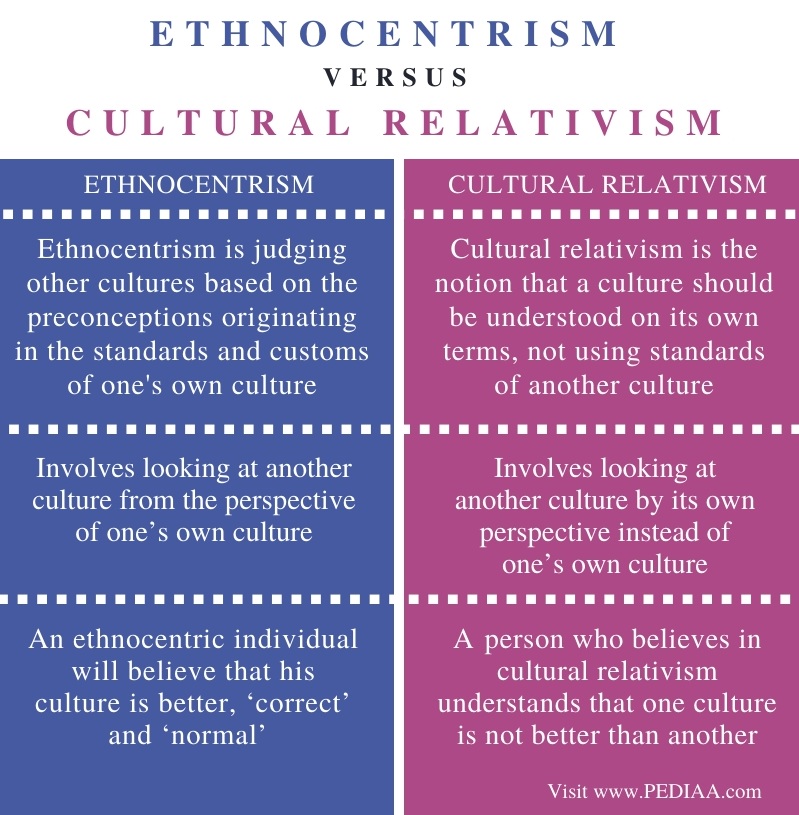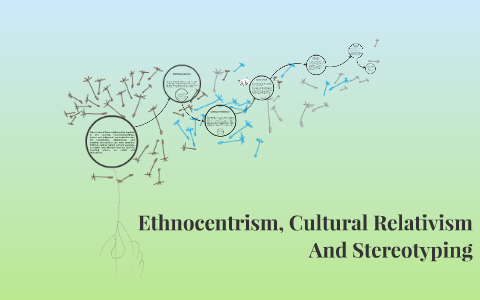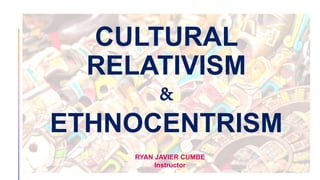Cultural relativism and ethnocentrism are two opposing concepts that pertain to the way in which individuals perceive and evaluate the cultural practices and beliefs of others. Cultural relativism is the idea that the beliefs, values, and practices of a culture should be understood and evaluated within their own context, rather than in comparison to the standards of another culture. In contrast, ethnocentrism is the tendency to view one's own culture as superior to others and to judge other cultures based on the standards of one's own culture.
Advocates of cultural relativism argue that all cultures are equally valid and that it is important to understand and respect the cultural practices of others, even if they differ from our own. This view is based on the idea that culture is a complex system of beliefs, values, and practices that are shaped by a variety of factors, including history, geography, and social and economic conditions. As such, it is important to consider the specific context in which a culture has developed, rather than making judgments based on our own cultural biases.
One of the main arguments in favor of cultural relativism is that it promotes tolerance and understanding between different cultural groups. By recognizing and respecting the cultural practices of others, we can learn to appreciate the diversity of human experience and the different ways in which people live and think. This can help to foster a sense of mutual understanding and cooperation between different cultural groups and can ultimately contribute to a more peaceful and harmonious society.
However, some critics of cultural relativism argue that it can be used to justify harmful or oppressive cultural practices. For example, cultural relativism could be used to defend female genital mutilation or honor killings, which are practices that are widely considered to be human rights violations. In these cases, cultural relativism may be used to justify these practices on the grounds that they are part of a culture's tradition, even though they may be harmful or oppressive.
Ethnocentrism, on the other hand, is the belief that one's own culture is superior to others and that the practices and beliefs of other cultures should be judged based on the standards of one's own culture. Ethnocentrism can lead to a narrow-minded and judgmental attitude towards other cultures and can contribute to misunderstandings and conflicts between different cultural groups.
Despite the potential drawbacks of cultural relativism, it is generally considered to be a more useful and ethical approach to understanding other cultures. By recognizing and respecting the cultural practices of others, we can learn to appreciate the diversity of human experience and can ultimately contribute to a more peaceful and harmonious society. In contrast, ethnocentrism tends to lead to misunderstandings and conflicts between different cultural groups and can contribute to a narrow-minded and judgmental attitude towards others.







